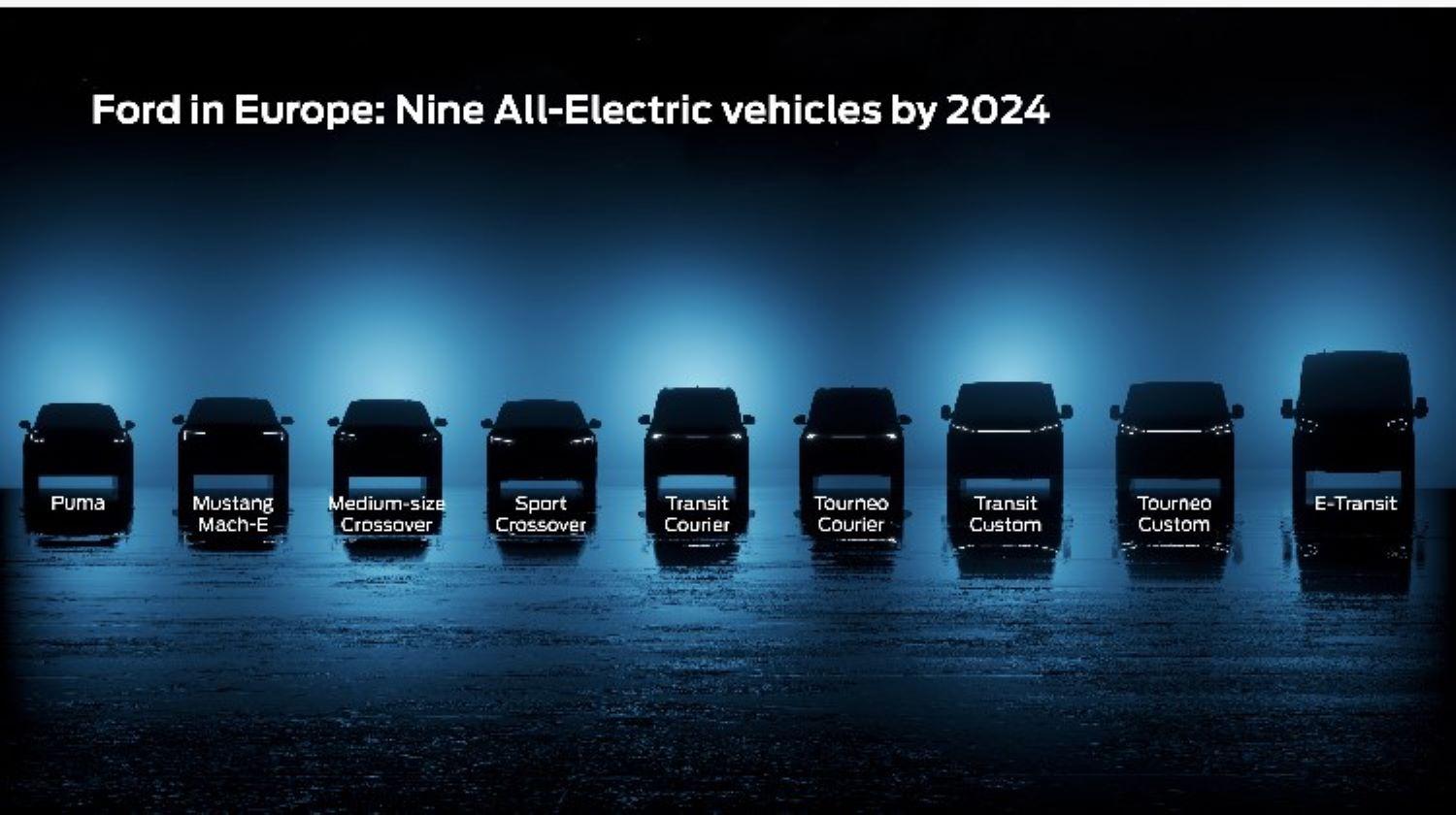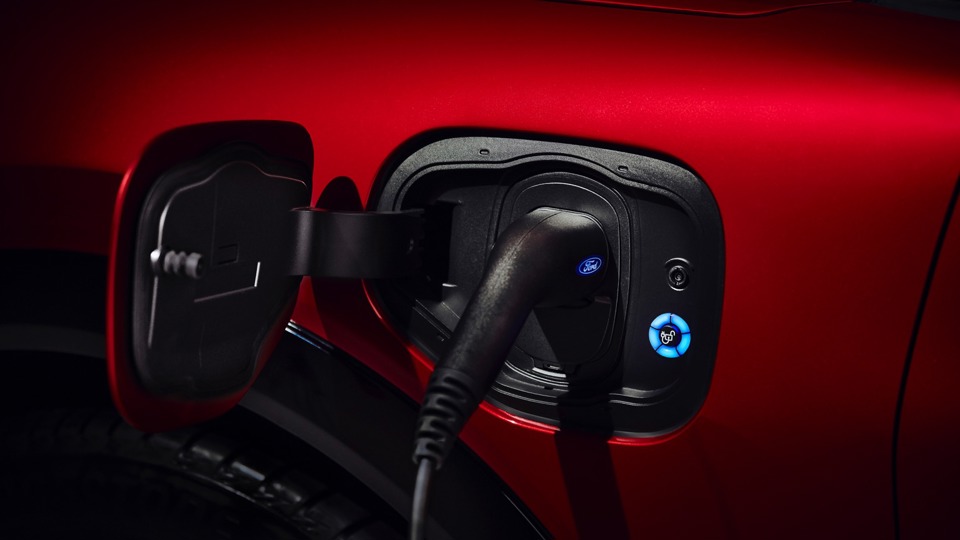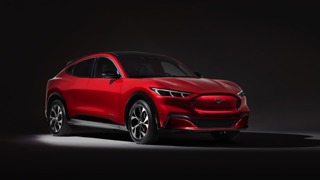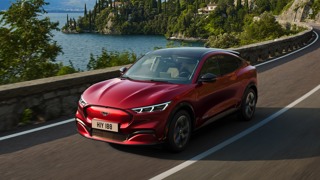Ford has unveiled plans to launch seven new all-electric vehicles in Europe – three new passenger vehicles and four new commercial vehicles – by 2024.
Starting in 2023, Ford will begin production of an all-new electric passenger vehicle, a medium-sized crossover, built in Cologne with a second electric vehicle added to the Cologne production line-up in 2024.
Both newcomers will be built on the Volkswagen Group's MEB platform, as part of a strategic alliance between the German car maker and the Blue oval.
The first model is likely to be largely based on the VW ID4, while the second is billed as a 'sports crossover' like the upcoming VW ID5.
In addition, an electric version of the current Ford Puma will be available, made in Craiova, Romania, starting in 2024.
Ford’s Transit range will also include four new electric models – the all-new Transit Custom one-tonne van and Tourneo Custom multi-purpose vehicle in 2023, and the smaller, next generation Transit Courier van and Tourneo Courier multi-purpose vehicle in 2024.
“These new Ford electric vehicles signal what is nothing less than the total transformation of our brand in Europe – a new generation of zero-emission vehicles, optimized for a connected world, offering our customers truly outstanding user experiences,” said Stuart Rowley, chair, Ford of Europe.
EV production and investment in Cologne
Ford confirmed today that the first volume all-electric passenger vehicle to come out of the Ford Cologne Electrification Centre will be a five-seat, medium-sized crossover.
In 2021, sports utilities and crossovers accounted for 58% of all Ford passenger vehicle sold in the continent, up nearly 20 percentage points from 2020.
The all-electric crossover breaks new boundaries for Ford. Capable of a 500km (310m) driving range on a single charge, the vehicle and its name will be revealed later in 2022, with production commencing in 2023.
Today’s confirmation that a second, all-electric passenger vehicle – a sports crossover – will be built at the Ford Cologne Electrification Centre means that electric vehicle production at the facility will increase to 1.2 million vehicles over a six-year timeframe.
Investment in the new electric passenger vehicles to be built in Cologne is expected to be $2 billion. The investment includes a new battery assembly facility scheduled to start operations in 2024.

New global business unit
Today’s announcement builds on the recent news that the company has created a new global business unit – Ford Model e – focused on the design, production, and distribution of electric and connected vehicles.
Together with Ford Pro, the business unit focused on Ford’s commercial vehicle business, these two business units will define Ford’s future in Europe, it says.
“I am delighted to see the pace of change in Europe – challenging our entire industry to build better, cleaner and more digital vehicles,” said Jim Farley, Ford president and CEO. “Ford is all-in and moving fast to meet the demand in Europe and around the globe.
“This is why we have created Ford Model e – allowing us to move at the speed of a start-up to build electric vehicles that delight and offer connected services unique to Ford and that are built with Ford-grade engineering and safety.”
Ford expects its annual sales of electric vehicles in Europe to exceed 600,000 units in 2026, and also reaffirmed its intention to deliver a 6% EBIT margin in Europe in 2023.
The acceleration in Europe supports Ford’s goal to sell more than 2 million EVs globally by 2026 and deliver company adjusted EBIT margin of 10%.
“Our march toward an all-electric future is an absolute necessity for Ford to meet the mobility needs of customers across a transforming Europe,” explained Rowley. “It’s also about the pressing need for greater care of our planet, making a positive contribution to society and reducing emissions in line with the Paris Climate Agreement.”
The company also announced today that it is targeting zero emissions for all vehicle sales in Europe and carbon neutrality across its European footprint of facilities, logistics and suppliers by 2035.
New joint venture aims to increase battery production in Europe
To support Ford’s vehicle electrification plans, Ford, SK On Co and Koç Holding have signed a non-binding Memorandum of Understanding for a new joint venture business in Turkey.
Subject to execution of a final agreement, the three partners plan to create one of the largest EV battery facilities in the European wider region.
The joint venture would be located near Ankara and will manufacture Nickel NMC cells for assembly into battery array modules. Production is intended to start as early as mid-decade with an annual capacity likely to be in the range of 30 to 45 Gigawatt hours.
The investment the three partners are planning in the battery joint venture – including support from the Turkish Government – will directly benefit large and small commercial vehicle operators across Europe, it says.
> Interested in comparing electric vehicle data? Check out our EV tool.
> Interested in ensuring the efficient use of EVs. Check out our dedicated editorial sections: Insight & policy | EV news | Charging & infrastructure | Costs & incentives | Benefit-in-kind | EV case studies | EV road tests





















Login to comment
Comments
No comments have been made yet.